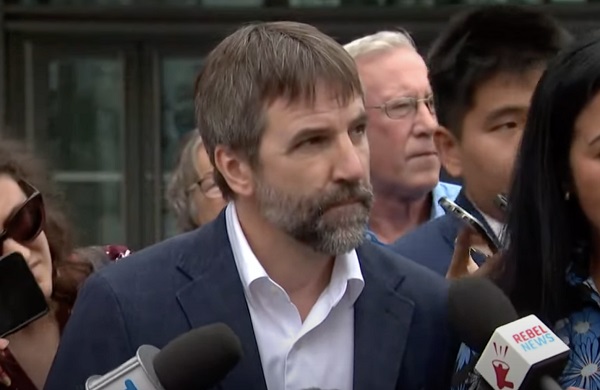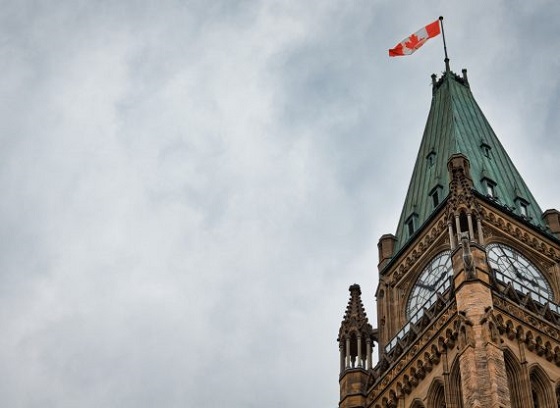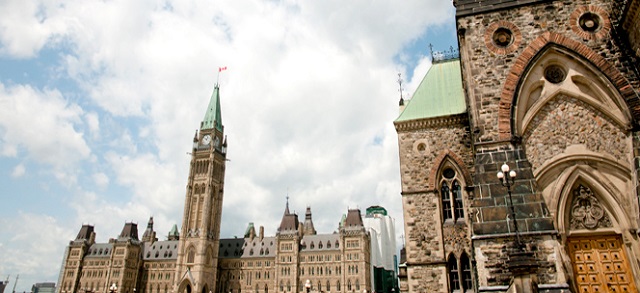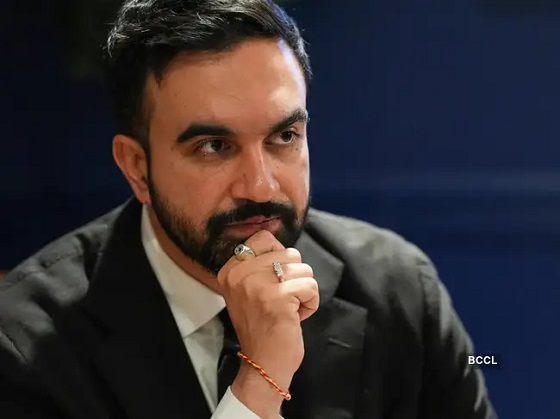Energy
Trudeau’s climate chief threatens Saskatchewan’s Scott Moe for refusing to collect carbon tax

From LifeSiteNews
Moe, however, has refused to be intimidated by Guilbeault’s threats, telling media this week that the carbon tax “is driving inflation and we still are paying a good chunk in other areas and the position from the government of Saskatchewan’s perspective hasn’t changed nor will it change. It should be removed on all products for all.”
Trudeau’s Liberal Environment Minister Steven Guilbeault has threatened to take “measures” against the premier of Saskatchewan for refusing to collect the federal carbon tax on home heating in his province.
On March 4, Guilbeault condemned Saskatchewan Premier Scott Moe’s decision not to collect the carbon tax on home heating in the western province. Moe’s decision came after Prime Minister Justin Trudeau’s government gave a carbon tax exemption on home heating oil, a break that almost exclusively benefits the Liberal voting Atlantic provinces.
“If Premier Scott Moe decides that he wants to start breaking laws and not respecting federal laws, then measures will have to be taken,” Guilbeault told reporters Monday.
“We can’t let that happen. What if somebody tomorrow decides that they don’t want to respect other federal laws, criminal laws? What would happen then if a prime minister, a premier of a province, would want to do that?” he questioned, apparently forgetting his own criminal history.
“It’s irresponsible and it’s frankly immoral on his part,” Guilbeault continued. “We can have disagreements about things like climate change, but to be so reckless is unspeakable, really.”
Beginning January 1, Saskatchewan stopped collecting the carbon tax on electric and natural gas home heating, a move which has already been shown to have lowered the province’s inflation rate.
Moe made the announcement in October after Trudeau suspended his carbon tax on home heating oil, which is almost exclusively used in Atlantic Canada to heat homes, and not in his province.
“I cannot accept the federal government giving an affordability break to people in one part of Canada but not here,” Moe said in a video posted on X at the time.
Moe promised that if the Trudeau government did not provide the exemption provided to Atlantic Canada to the rest of the nation, he would tell SaskEnergy, the province’s Crown corporation that provides energy to all residents, to stop collecting the carbon tax on natural gas. This, Moe said, would effectively provide “Saskatchewan residents with the very same exemption that the federal government has given heating oil in Atlantic Canada.”
Moe’s government has gone as far as introducing legislation to back the scrapping of the federal carbon tax on natural gas. The legislation will shield all executives at SaskEnergy from being jailed or fined by the federal government if they stop collecting the tax.
Despite the popularity and seeming fairness of Moe’s decision, Trudeau’s Liberal government has refused to rule out jail time for Moe if he refuses to collect the carbon tax on home heating.
Moe, however, has refused to be intimidated by Guilbeault’s threats, telling media this week that the carbon tax “is driving inflation and we still are paying a good chunk in other areas and the position from the government of Saskatchewan’s perspective hasn’t changed nor will it change. It should be removed on all products for all.”
Additionally, Conservative leader Pierre Poilievre pointed out that while Guilbeault challenges Moe for breaking the law by refusing to collect the carbon tax, Guilbeault himself has a history of breaking the law.
“Guilbeault calls out Saskatchewan’s lawlessness for refusing to collect his carbon tax,” Poilievre posted on X with a photo of Guilbeault being arrested in 2001.
Guilbeault calls out Saskatchewan's lawlessness for refusing to collect his carbon tax. pic.twitter.com/p3PnwyHzWr
— Pierre Poilievre (@PierrePoilievre) March 6, 2024
While a current member of the Trudeau government cabinet, Guilbeault has a history of taking extreme action in the name of the climate.
In 1997, he joined Greenpeace and served for a time as a director and then campaign manager of its Quebec chapter for about 10 years.
He was arrested many times for environmental protests, the most famous arrest coming after an incident in 2001 when he climbed Toronto’s CN Tower with British activist Chris Holden. The pair hung a banner saying “Canada and Bush — Climate Killers.”
Greenpeace is a group that advocates for population control in addition to calling for an end to all oil and gas use.
Last month, Guilbeault was publicly ridiculed after he said the federal government would no longer fund any road construction projects and instead funnel the savings to “climate change” projects that promote walking instead of driving.
However, Guilbeault’s push for “climate change” regulations are consistent with those of Trudeau. Since taking office in 2015, Trudeau has continued to push a radical environmental agenda like the agendas being pushed the World Economic Forum’s “Great Reset” and the United Nations’ “Sustainable Development Goals.”
The reduction and eventual elimination of the use of so-called “fossil fuels” and a transition to unreliable “green” energy has also been pushed by the World Economic Forum – the globalist group behind the socialist “Great Reset” agenda – an organization in which Trudeau and some of his cabinet are involved.
The reality of Trudeau’s push for so-called renewable energy showed itself just over a month ago after Alberta’s power grid faced near certain collapse due to a failure of wind and solar power. Many called out the Trudeau government’s green energy agenda that is attempting to phase out carbon-based power in favor of “renewables” as the reason for the near failure.
Daily Caller
UN Chief Rages Against Dying Of Climate Alarm Light


From the Daily Caller News Foundation
The light of the global climate alarm movement has faded throughout 2025, as even narrative-pushing luminaries like Bill Gates have begun admitting. But that doesn’t mean the bitter clingers to the net-zero by 2050 dogma will go away quietly. No one serves more ably as the poster child of this resistance to reality than U.N. chief Antonio Guterres, who is preparing to host the UN’s annual climate conference, COP30, in Brazil on Nov. 10.
In a speech on Monday, Guterres echoed poet Dylan Thomas’s advice to aging men and women in his famed poem, “Do not go gentle into that good night:”
Do not go gentle into that good night,
Old age should burn and rave at close of day;
Rage, rage against the dying of the light.
Dear Readers:
As a nonprofit, we are dependent on the generosity of our readers.
Please consider making a small donation of any amount here.
Thank you!
Though wise men at their end know dark is right,
Because their words had forked no lightning they
Do not go gentle into that good night.
Seeing that his own words have “forked no lightning,” Guterres raged, raged against the dying of the climate alarm light.
“Governments must arrive at the upcoming COP30 meeting in Brazil with concrete plans to slash their own emissions over the next decade while also delivering climate justice to those on the front lines of a crisis they did little to cause,” Guterres demanded, adding, “Just look at Jamaica.”
Yes, because, as everyone must assuredly know, the Earth has never produced major hurricanes in the past, so it must be the all-powerful climate change bogeyman that produced this major storm at the end of an unusually slow Atlantic hurricane season.
Actually, Guterres’ order to all national governments to arrive in Belem, Brazil outfitted with aspirational plans to meet the net-zero illusion, which everyone knows can and will never be met, helps explain why President Donald Trump will not be sending an official U.S. delegation. Trump has repeatedly made clear – most recently during his September speech before the U.N. General Assembly – that he views the entire climate change agenda as a huge scam. Why waste taxpayer money in pursuit of a fantasy when he’s had so much success pursuing a more productive agenda via direct negotiations with national leaders around the world?
“The Green New Scam would have killed America if President Trump had not been elected to implement his commonsense energy agenda…focused on utilizing the liquid gold under our feet to strengthen our grid stability and drive down costs for American families and businesses,” Taylor Rogers, a White House spokeswoman, said in a statement to the Guardian. “President Trump will not jeopardize our country’s economic and national security to pursue vague climate goals that are killing other countries,” she added.
The Guardian claims that Rogers’s use of the word “scam” refers to the Green New Deal policies pursued by Joe Biden. But that’s only part of it: The President views the entire net-zero project as a global scam designed to support a variety of wealth redistribution schemes and give momentum to the increasingly authoritarian forms of government we currently see cracking down in formerly free democracies like the U.K., Canada, Germany, France, Australia and other western developed nations.
Trump’s focused efforts on reversing vast swaths of Biden’s destructive agenda is undoing 16 years of command-and-control regulatory schemes implemented by the federal government. The resulting elimination of Inflation Reduction Act subsidies is already slowing the growth of the electric vehicles industry and impacting the rise of wind and solar generation as well.
But the impacts are international, too, as developing nations across the world shift direction to be able to do business with the world’s most powerful economy and developed nations in Europe and elsewhere grudgingly strive to remain competitive. Gates provided a clear wake-up call highlighting this global trend with his sudden departure from climate alarmist orthodoxy and its dogmatic narratives with his shift in rhetoric and planned investments laid out in last week’s long blog post.
Guterres, as the titular leader of the climate movement’s center of globalist messaging, sees his perch under assault and responded with a rhetorical effort to reassert his authority. We can expect the secretary general to keep raging as his influence wanes and he is replaced by someone whose own words might fork some lightning.
David Blackmon is an energy writer and consultant based in Texas. He spent 40 years in the oil and gas business, where he specialized in public policy and communications.
Daily Caller
US Eating Canada’s Lunch While Liberals Stall – Trump Admin Announces Record-Shattering Energy Report


From the Daily Caller News Foundation
By Audrey Streb
The Department of Energy (DOE) touted a report on Wednesday which states that America broke records in liquefied natural gas (LNG) exports.
The U.S. became the first country to export over 10 million metric tonnes of LNG in one month in October, Reuters reported on Monday, citing preliminary data from the financial firm LSEG. The DOE posted on X on Wednesday that “there are big opportunities ahead for U.S. natural gas” and has consistently championed LNG in a sharp departure from former President Joe Biden’s crackdown on the resource.
“The fact that America’s oil and gas industry was able to pass this stunning milestone is impressive considering all the roadblocks to progress which were thrown up by the Biden administration,” David Blackmon, an energy and policy writer who spent 40 years in the oil and gas business, told the Daily Caller News Foundation. “It is a testament to both the resilience and innovative mindset of the industry and to the phenomenal wealth of America’s natural gas resource.”
Dear Readers:
As a nonprofit, we are dependent on the generosity of our readers.
Please consider making a small donation of any amount here.
Thank you!
🗣️RECORD BREAKING: For the first time, U.S. LNG exports are projected to surpass 10 million metric tons in a single month. There are big opportunities ahead for U.S. natural gas!
— U.S. Department of Energy (@ENERGY) November 5, 2025
Two facilities in Louisiana and Texas are responsible for the LNG export surge, according to Reuters. The U.S. LNG industry emerged as an energy sector giant in recent decades, with America now leading the world in LNG exports after being projected to be a net importer as late as 2010, according to S&P Global.
The Biden administration enacted a freeze on new LNG export permits and “intentionally buried a lot of data and released a skewed study to discredit the benefits of American LNG,” the DCNF previously reported. The environmental lobby applauded Biden’s January 2024 freeze on new LNG export terminals, though critics argued that the policy stalled investment, would not reduce emissions and undermined America’s global strategic interests.
In contrast, President Donald Trump sought opportunities to bolster LNG and reversed the new permit pause through a day-one executive order. Some energy policy experts told the DCNF that the reported milestone highlights the resiliency of the industry and the benefit of Trump’s “American energy dominance” agenda.
-

 Business2 days ago
Business2 days agoFederal budget: Carney government posts largest deficit in Canadian history outside pandemic
-

 Business2 days ago
Business2 days agoBudget 2025 continues to balloon spending and debt
-

 Censorship Industrial Complex2 days ago
Censorship Industrial Complex2 days agoHow the UK and Canada Are Leading the West’s Descent into Digital Authoritarianism
-

 Business2 days ago
Business2 days agoCapital Flight Signals No Confidence In Carney’s Agenda
-

 Economy2 days ago
Economy2 days agoThe True Cost of Mark Carney’s Ineffective Green Energy Sinkhole
-

 International2 days ago
International2 days agoThe capital of capitalism elects a socialist mayor
-

 Justice18 hours ago
Justice18 hours agoCarney government lets Supreme Court decision stand despite outrage over child porn ruling
-

 Daily Caller1 day ago
Daily Caller1 day agoUS Eating Canada’s Lunch While Liberals Stall – Trump Admin Announces Record-Shattering Energy Report









